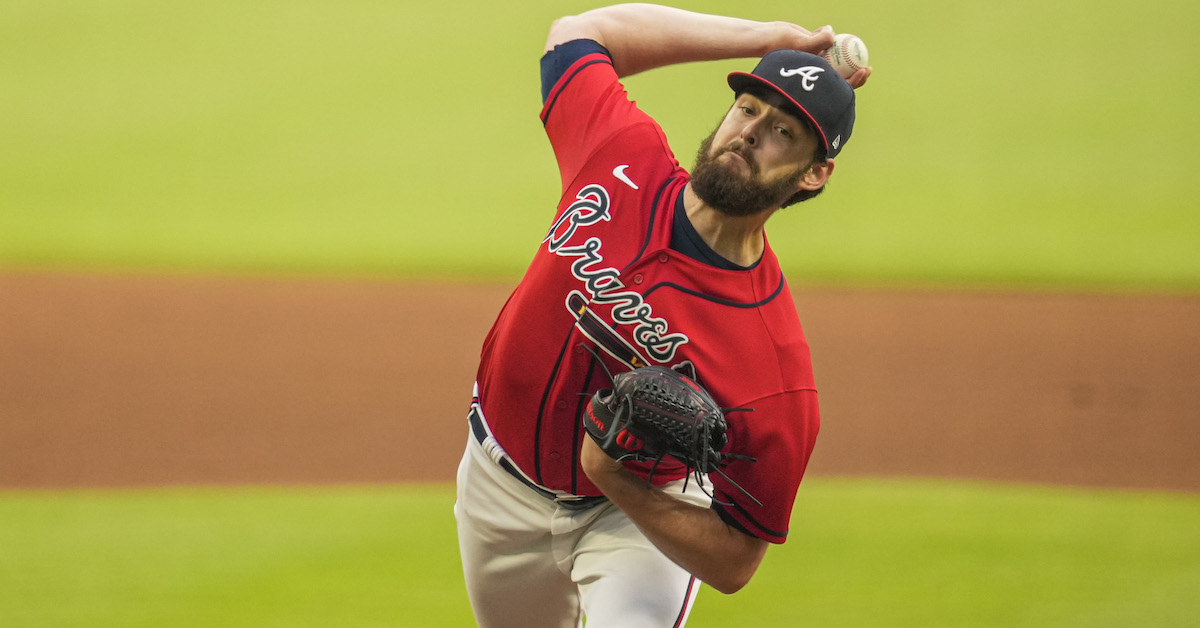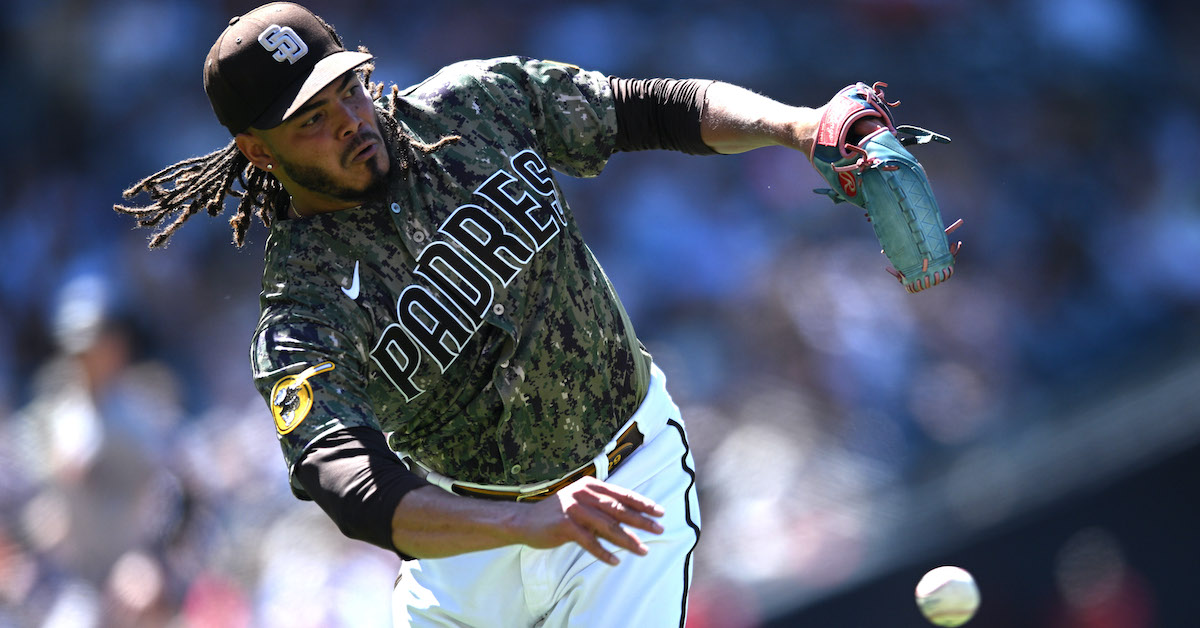Braves Send Struggling Ian Anderson Back to Triple-A

In addition to weathering an endless barrage of Jethro Tull jokes, Ian Anderson has played an outsized role in the Braves’ success since reaching the majors in late 2020. The 24-year-old righty has struggled this year, however, and on Sunday, the Braves optioned him to Triple-A Gwinnett in hopes that he can recover the form that helped his team come within one win of a trip to the World Series in 2020, then win a championship last year.
Anderson has pitched to a 5.11 ERA, the sixth-highest in the majors among pitchers with at least 100 innings, and a 4.24 FIP in 105.2 frames this year. He has been frustratingly inconsistent, allowing four runs or more in eight of his last 14 starts, five of those while failing to complete at least five innings. In his other six outings in that span, he’s allowed two runs or fewer.
Consider the sequence of Anderson’s last eight starts, a mix of good and bad outings versus good and bad teams: 4 IP/4 ER (vs. Dodgers on June 24), 2 IP/7 ER (vs Phillies on June 30), 5 IP/1 ER (vs. Cardinals on July 5), 5.2 IP/2 ER (vs. Nationals on July 10), 5.2 IP/ 1 ER (vs. Nationals again on July 15), 3 IP/7 ER (vs. Angels on July 24), 6 IP/0 ER (vs. Diamondbacks on July 30), and 4 IP/4 ER (vs. Mets on August 5). In the penultimate start in that stretch, he held Arizona to one hit and one walk, matching his season high of nine strikeouts, and on Friday, he yielded seven hits and four walks to the Mets, striking out just three. That’s not only a lot of variance, but it’s also a 6.62 ERA and a 12.4% walk rate over a six-week stretch, too much for any team — particularly a contender — to stomach.
“We need to get him right,” said Braves manager Brian Snitker of the move. “Hopefully, he can take a step back, reassess things and get himself going. He’s experienced a lot during his young Major League career, but he’s not a finished product.”
“They think I’m a big part of this,” said Anderson. “I need to get back to what I know I can be, and what they know, as well… Now it’s just kind of about getting confidence back and figuring some things out.”
Anderson relies on a three-pitch mix, with his changeup — thrown from a high and vertical arm slot — the star of the show. That pitch is still exceptional, but his results on both his four-seam fastball and his curve have receded significantly since he reached the majors, in part because he throws the latter less often when he falls behind in the count — and he’s falling behind more often. Always a pitcher with a reverse platoon split, he’s also been rocked for a .316/.380/.505 line by righties this year.
Anderson’s jump from last year’s 3.58 ERA is the third-largest in the majors among pitchers with at least 100 innings in both seasons:
| Rk | Pitcher | Team | 2021 | 2022 | Dif |
|---|---|---|---|---|---|
| 1 | Ranger Suárez | PHI | 1.36 | 3.68 | 2.32 |
| 2 | José Berríos | MIN/TOR | 3.52 | 5.19 | 1.67 |
| 3 | Ian Anderson | ATL | 3.58 | 5.11 | 1.53 |
| 4 | Lucas Giolito | CHW | 3.53 | 4.91 | 1.38 |
| 5 | Patrick Corbin | WSN | 5.82 | 7.02 | 1.20 |
| 6 | Robbie Ray | TOR/SEA | 2.84 | 3.96 | 1.12 |
| 7 | Cal Quantrill | CLE | 2.89 | 3.88 | 0.99 |
| 8 | Sean Manaea | OAK/SDP | 3.91 | 4.74 | 0.82 |
| 9 | Germán Márquez | COL | 4.40 | 5.18 | 0.78 |
| 10T | Charlie Morton | ATL | 3.34 | 4.09 | 0.74 |
| Tyler Mahle | CIN/MIN | 3.75 | 4.49 | 0.74 |
Factoring parks and scoring environments into this, Anderson’s 39-point gain in ERA- (from 83 to 122) drops him to fifth, with Giolito and Ray leapfrogging him, but any way you slice it, that’s an unflattering list to land on. Read the rest of this entry »






